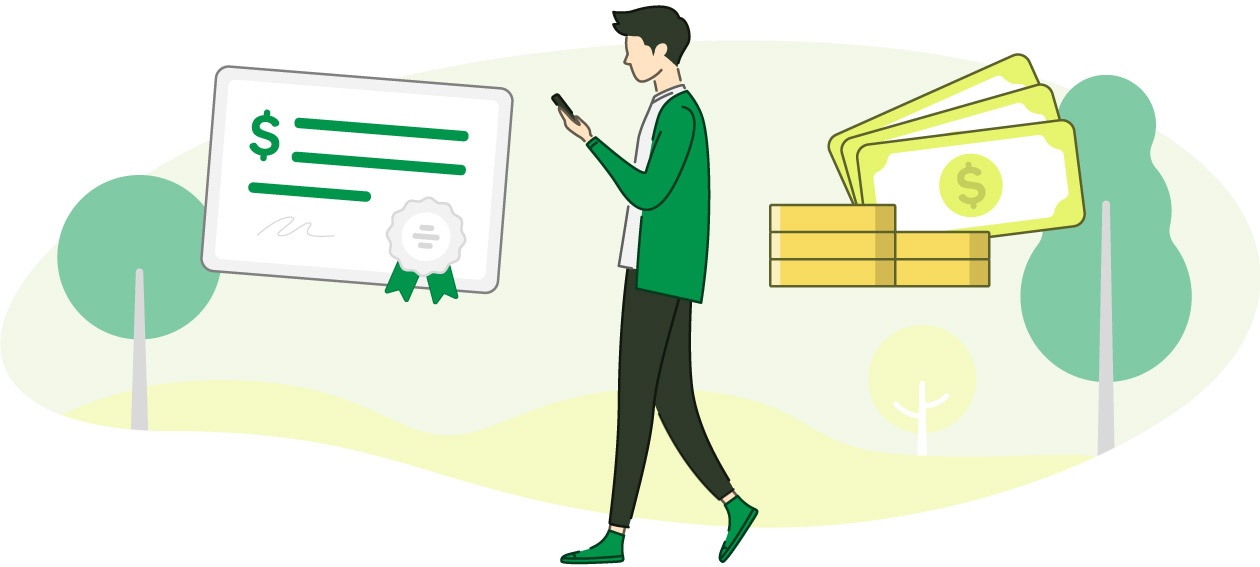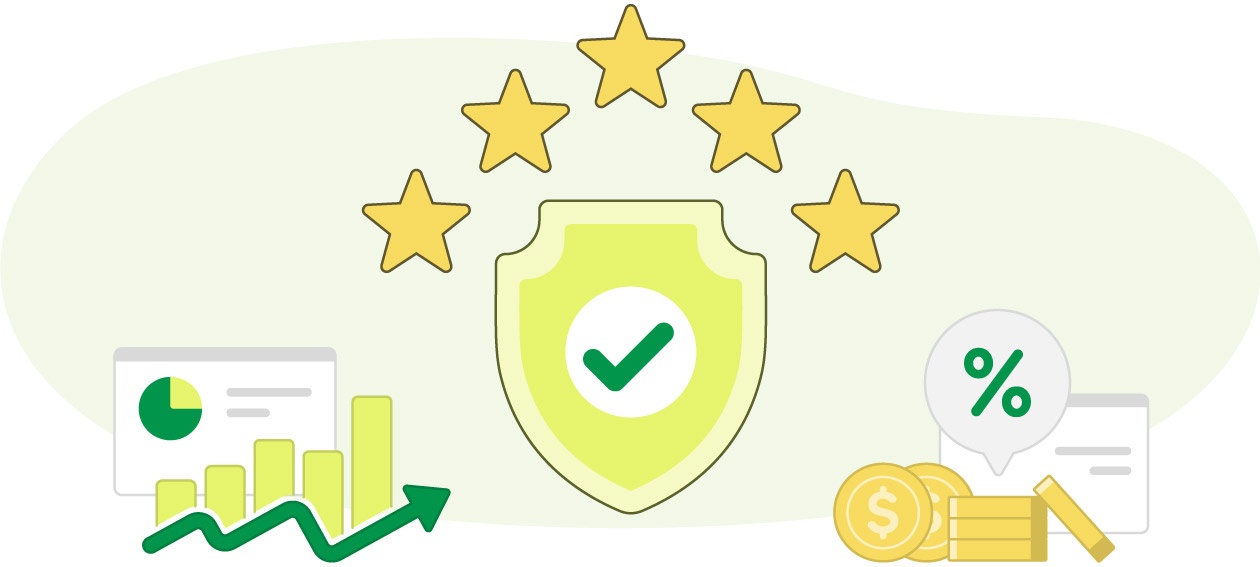We use cookies to give you the best possible experience on our website. By continuing to browse this site, you give consent for cookies to be used. For more details, please read our Online Terms & Conditions, Privacy Policy, Cookies Policy and Personal Information Collection Statement.
We recommend using a computer web browser or Hang Seng Mobile App to log on for enhanced security. Please visit "Security Information Centre" for more security tips.
Please read the important risk warnings for Bonds and Certificates of Deposit.
Bonds are debt instruments issued by governments, corporations or other issuers to bondholders. Bondholders are effectively lending money to the bond issuer in return for the regular interest payment over the life of the bond and repayment of principal at maturity.
Investing in bonds can grow your wealth and diversify your overall portfolio. Given the unpredictability and volatility of international markets, it is important to plan ahead and prepare for the unexpected risks.
Bonds are an essential component of a well-balanced portfolio throughout every stage of your life.
Inflation-linked retail bond (iBond), Retail Green Bonds or Silver Bond Series issued by the government might be familiar to you but there are actually many types of bonds and more choices in the market. Are bonds only suitable for professional investors? Let’s debunk a few of the most common myths and learn more about bonds!

Bonds may offer lower returns than stocks, but they exhibit lower volatility and provide a steady source of income (Bondholder is able to get back the principal if held to maturity assuming the bond issuer does not default due to financial difficulties).
In general, high investment grade bonds can provide a steady source of income in the form of regular coupon payments and predictable repayment of principal at maturity, making them good fits for more conservative investors whose main goal is to generate passive income.
Bonds could provide interest payments over a specific term plus repayment of principal at maturity whereas bond funds are collections of bonds that are professionally managed for total return and a specific objective. Investors will be charged for management fee, subscription fee, etc. The 2 may seem similar, but here are some key differences:
| Individual Bonds |
Bond Funds | |
|---|---|---|
| Principal | Repayment of principal[1] | No guarantee of principal repayment |
| Payment | Usually annually or semi-annually, in terms of coupon payment | Payment schedule is not fixed; it depends on the fund performance and strategy |
| Fees and charges | Subject to individual bank's fee policy, but in general, there is no management fees and trading fees | Including, but not limited to, service charges, management and trading fees |
Minimum subscription amount depends on the issuer. While some bonds have a minimum denomination of USD100K or USD200K, the minimum subscription amount of some retail bonds e.g. ibonds that are issued by the government is HKD10K.
While professional investors can access a wider selection of wealth products and dedicated advisory services from a team of wealth management experts provided by the Hang Seng Bank, bond investment is in fact suitable for any types or levels of investors, especially investors with a goal to achieve a steady source of passive income.

Coupon rate refers to the annual interest rate paid on bond’s face value, while yield-to-maturity (YTM) is the total rate of return that an investor received from holding the bond until maturity. |
Bonds with a credit rating of BBB- (on Standard & Poor's and Fitch scales) or Baa3 (on Moody's) or above are classified as investment grade and they are considered to have lower default risk.
Despite risk rating provides a useful measure of risk assessment i.e. evaluating the probability of a bond defaulting, the absence of a bond rating does not necessarily imply that the bond is risker than that with a credit rating. An unrated bond simply means that a credit agency has not attached a bond rating to it.
In fact it is quite common for governments and some multinational companies to issue unrated bonds due to a number of reasons i.e. the costs incurred and the issue size of a bond, some issuers would choose not to have their bonds rated.
Bond prices and interest rates are inversely related. Bond prices generally drops when interest rates rise, and vice versa. Moreover, the higher the credit rating of the bond, the lower the yield-to-maturity (YTM). Bonds with long maturities are more sensitive to a change in market interest rates. Conversely, bonds with shorter maturity dates will be less volatile in a changing rate environment.
When the market interest rate is expected to rise, bond prices might fall. In general, short-term bonds are less sensitive to interest rates changes. |
You might consider changing your bond investment strategies during times of market volatility. Do you have to hold a bond until it matures? While holding it to maturity might provide more predictable return, you may get a different amount than its par value by selling it before it matures. For example, if interest rates have fallen since the bond was purchased, you may be able to gain by selling it a premium above par and vice versa.
Dirty Price = Clean Price + Accrued Interest
Accrued Interest refers to the amount of interest that has accumulated since the principal investment or since the last interest payment date.
For example:
Dirty Price = HKD1,500 + HKD6.37 = HKD1,506.37
Therefore, the dirty price of a bond sold on January 1 would be HKD1,506.37.

It makes no periodic interest payment but instead it usually offers discounts on its face value. The earnings accumulate until maturity when they are redeemed at face value on a specific maturity date.
The issuer is not obligated to repay principal to the investors; but the issuer has an obligation to provide interest payments forever until the issuer recalls the bond.
Usually pays a higher interest rate to compensate for the early call. It also comes with call protection when there is a specific period during which the issuer cannot recall the bond.
Bonds that can be converted into a predetermined amount of the company’s equity at certain times during its life, usually at the discretion of the bondholder.
Purchase in just 3 quick steps
Open a bank account and investment
account with Hang Seng Personal Banking Mobile App[2]
Comprehensive Bonds/CDs Investments
experience is just a few steps away[3]
Open an Integrated Account at designated branches and activate your investment account via Personal e-Banking
General hotline
Investors should note that all investments involve risks (including the possibility of loss of the capital invested). Investors should read carefully and understand the relevant offering documents before making any investment decision.